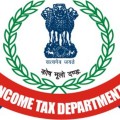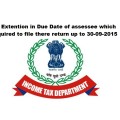CBDT Clarification on Period of Limitation for Penalty u/s 271D and 271E
CBDT vide its Circular No. 10/2016 dated 26-04-2016 clarified that the period of limitation of penalty proceedings under section 271D and 271E of the Act is governed by the provisions of section 275(1)(c) of the Act. Therefore, the limitation period for the imposition of penalty under these provisions would be the expiry of the financial year in which the proceedings, in the course of which action for the imposition of penalty has been initiated, are completed, or six months from the end of the month in which action for imposition of penalty is initiated, whichever period expires later. The limitation period is not dependent on the pendency of appeal against the assessment or other order referred to in section 275(1)(a) of the Act.
The clarification issued by board in consequence to decision of the Hon’ble Delhi High Court in the case of Commissioner of Income Tax vs. Worldwide Township Projects Ltd [2014-LL-0521-71(NJRS)], vide its order dated 21.5.14 in ITA No. 232/2014.
Circular No. 10/2016
F.No.279/Misc./M-140/2015-ITJ
GOVERNMENT OF INDIA
MINISTRY OF FINANCE
DEPARTMENT OF REVENUE
CENTRAL BOARD OF DIRECT TAXES
*********
New Delhi, 26th April, 2016
Subject:- Limitation for penalty proceedings under sections 271D and 271E of the Income tax Act, 1961 – reg.
The issue whether the limitation for imposition of penalty under sections 271D and 271E of the Income tax Act, 1961, (hereinafter referred to as the Act) is determined under section 275(1)(a) or section 275(1)(c) of the Act, has given rise to considerable litigation.
2.The Hon’ble Delhi High Court in the case of Commissioner of Income Tax vs. Worldwide Township Projects Ltd [2014-LL-0521-71(NJRS)], vide its order dated 21.5.14 in ITA No. 232/2014, considered the issue and observed that, “It is well settled that a penalty under this provision is independent of the assessment. The action inviting imposition of penalty is granting of loans above the prescribed limit otherwise than through banking channels and as such infringement of Section 269SS of the Act is not related to the income that may be assessed or finally adjudicated. In this view Section 275(1)(a) of the Act would not be applicable and the provisions of Section 275(1)(c) would be attracted. “The judgment has been accepted by the Central Board of Direct Taxes.
3.In view of the above, it is a settled position that the period of limitation of penalty proceedings under section 271D and 271E of the Act is governed by the provisions of section 275(1)(c) of the Act. Therefore, the limitation period for the imposition of penalty under these provisions would be the expiry of the financial year in which the proceedings, in the course of which action for the imposition of penalty has been initiated, are completed, or six months from the end of the month in which action for imposition of penalty is initiated, whichever period expires later. The limitation period is not dependent on the pendency of appeal against the assessment or other order referred to in section 275(1)(a) of the Act.
4.Accordingly, no appeals may henceforth be filed on this ground by the officers of the Department and appeals already filed, if any, on this issue before various Courts/Tribunals may not be pressed upon.
5.The above may be brought to the notice of all concerned.
(Sadhana Panwar)
DCIT (OSD)(ITJ),
CBDT, New Delhi
Source: http://www.incometaxindia.gov.in/communications/circular/circular10_2016.pdf







As per finance act 2016 X person repays loan of Rs. 18,000/- along with interest of Rs. 3,000/- thereon in cash. Then: A) X is not liable for penalty u/s 271E. B) X is liable for penalty u/s 271E for an amount of Rs. 18,000/- C) X is liable for penalty u/s 271E for an amount of Rs. 20,000/- D) X is liable for penalty u/s 271E for an amount ranging from Rs. 21,000/-